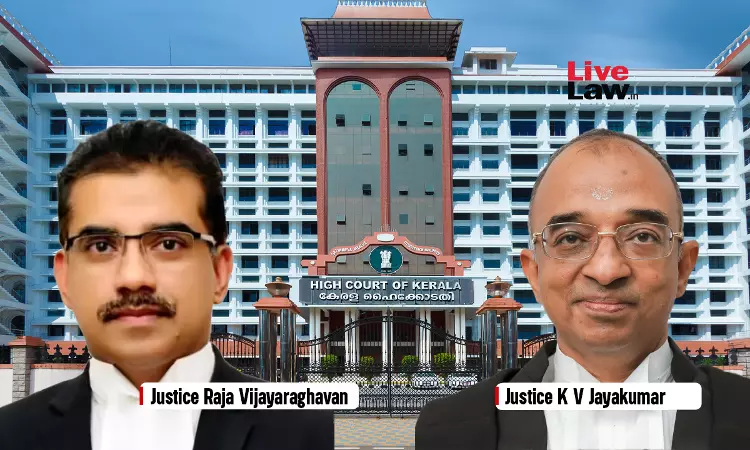- Home
- /
- High Courts
- /
- Kerala High Court
- /
- Lessee In Possession Can't Be...
Lessee In Possession Can't Be Charged With House Trespass Under Section 450 IPC: Kerala High Court
Anamika MJ
6 Oct 2025 3:15 PM IST
The Kerala High Court has clarified that a lessee in lawful possession of a house cannot be charged with or convicted for house trespass under Section 450 IPC. Justice Raja Vijayaraghavan V and Justice K V Jayakumar delivered the judgment in a criminal appeal filed by the accused in an acid attack case while setting aside conviction under 450 (House-trespass in order to commit offence...
The Kerala High Court has clarified that a lessee in lawful possession of a house cannot be charged with or convicted for house trespass under Section 450 IPC.
Justice Raja Vijayaraghavan V and Justice K V Jayakumar delivered the judgment in a criminal appeal filed by the accused in an acid attack case while setting aside conviction under 450 (House-trespass in order to commit offence punishable with imprisonment for life) of IPC. The bench however upheld his conviction under Section 326A (Voluntarily causing grievous hurt by use of acid, etc.).
The appellant was accused of pouring acid through the window of the home in which his wife and four children were residing while they were asleep. This resulted in grievous injuries to the victims including permanent loss of eyesight to elder daughter.
The trial court convicted the appellant under Section 326 and 450 of IPC.
The counsel for appellant contended that the trial court has erred in convicting him under Section 450 inasmuch as he was the lessee of the premises.
The Court examined Section 441 of IPC which states that if a person enters into or upon property in possession of another or unlawfully remains there with the intent to commit an offence, he is said to commit the offence of criminal trespass.
There are mainly two ingredients for Section 441 which includes entering a property in possession of another and unlawfully remaining in the property with intent to intimidate or insult or annoy another person.
The Court noted that since the accused was in possession of the house in which the victims resided, criminal trespass could not be invoked against the accused.
“In the case on hand, PW11 (the house owner) would say that the house where the victims are residing is leased out to the accused and the accused and his family, residing therein. She further stated that no rent deed was executed by the accused. If that be so, the accused, being the lessee, is in exclusive possession of the house. Since the accused is in possession of the house, there can be no criminal trespass or house trespass in the instant case. Therefore, the conviction and sentence imposed by the learned Sessions Judge for the offence under section 450 of the IPC cannot be sustained.” the court observed.
Accordingly the Court set aside the conviction under Section 450 of IPC and upheld the conviction under Section 326A observing that the offence involved extreme cruelty against the accused's wife and children.
The court also addressed victim compensation under Section 357 A CrPC. While the trial court had imposed a fine of Rs. 1,00,000, Court said it failed to recommend compensation under Section 357A.
Citing Supreme Court precedents in Ankush Shivaji Gaikwad v State of Maharashtra [2013 KHC 4371] and Laxmi v. Union of India [(2014) 4 SCC 427], the High Court held that compensation is a mandatory judicial duty in acid attack cases.
“In cases of acid attack, it is the bounden duty of the Courts to ensure that the victim is adequately compensated. In such cases, it is the imperative duty of the trial court to apply its mind and to pass appropriate orders to compensate the victim. The word “may” used in Sub Section (3) of Section 357A Cr.P.C. should be interpreted as mandatory.” the court noted.
Accordingly, it directed the State to pay Rs.3,00,000 each to the wife and four children who suffered grievous injuries.
Case Title : X v State of Kerala
Case No : Crl. App. 548/ 2022
Citation: 2025 LiveLaw (Ker) 622
Counsel for Appellant: P Mohamed Sabah, Libin Stanley. R Gayathri, Sadik Ismayil, Saipooja, M Mahin Hamza, Safiya Akbar, Ambika Devi
Counsel for Respondent: Bindu O V
Click Here To Read/ Download Judgment



